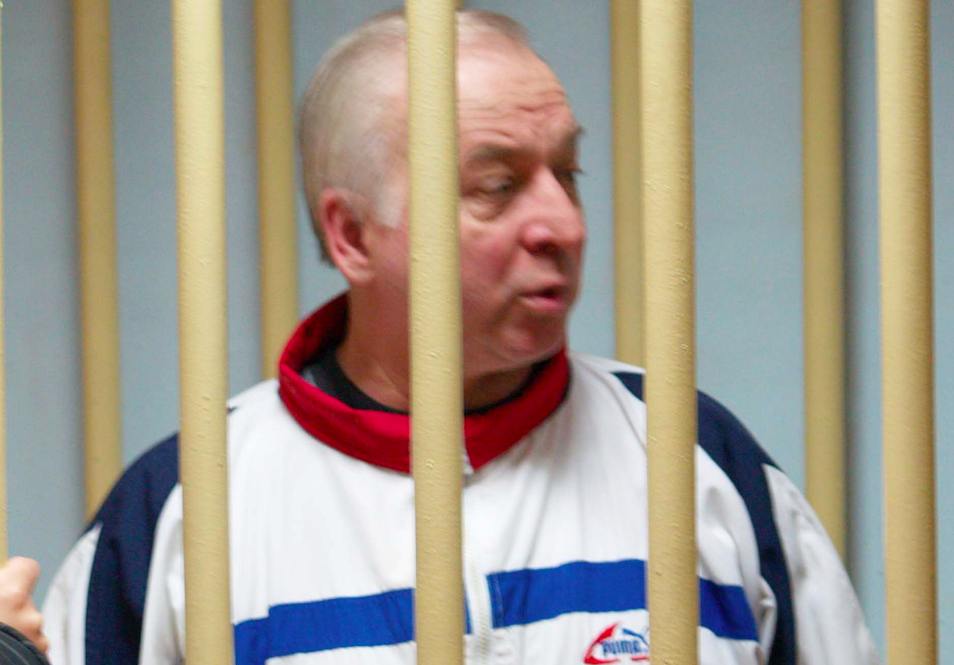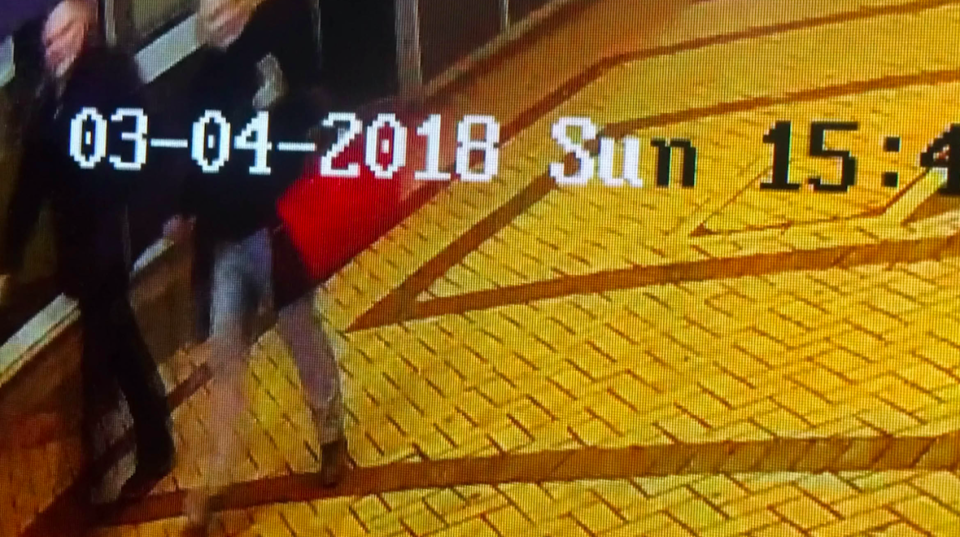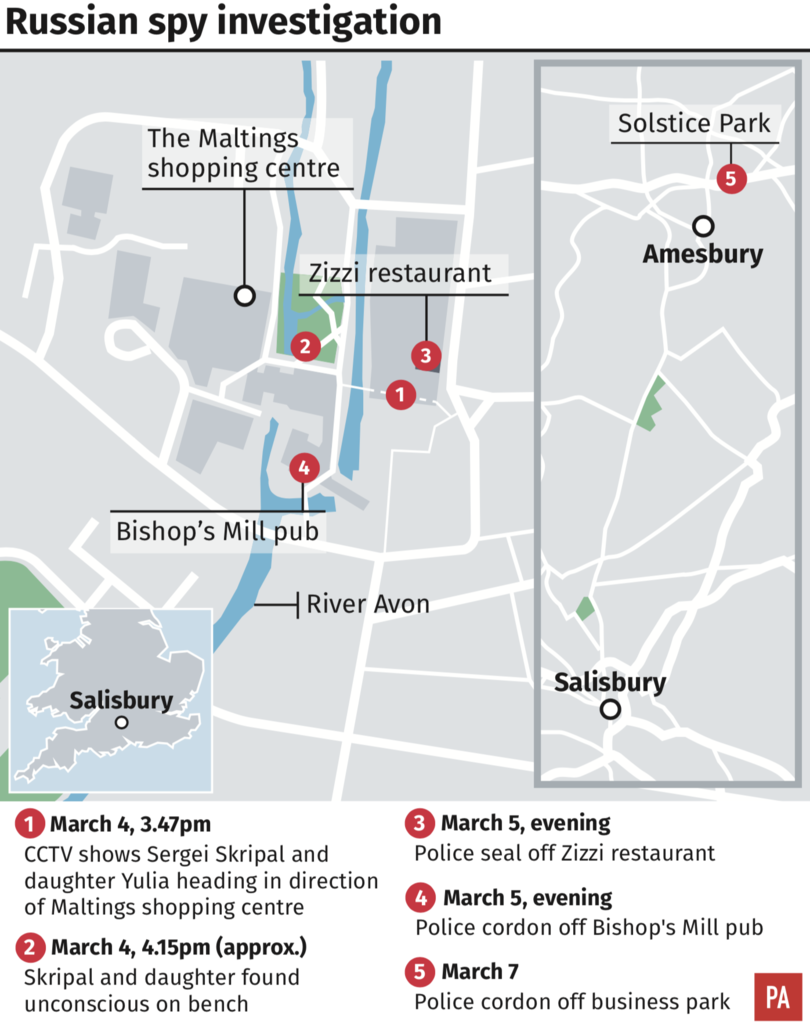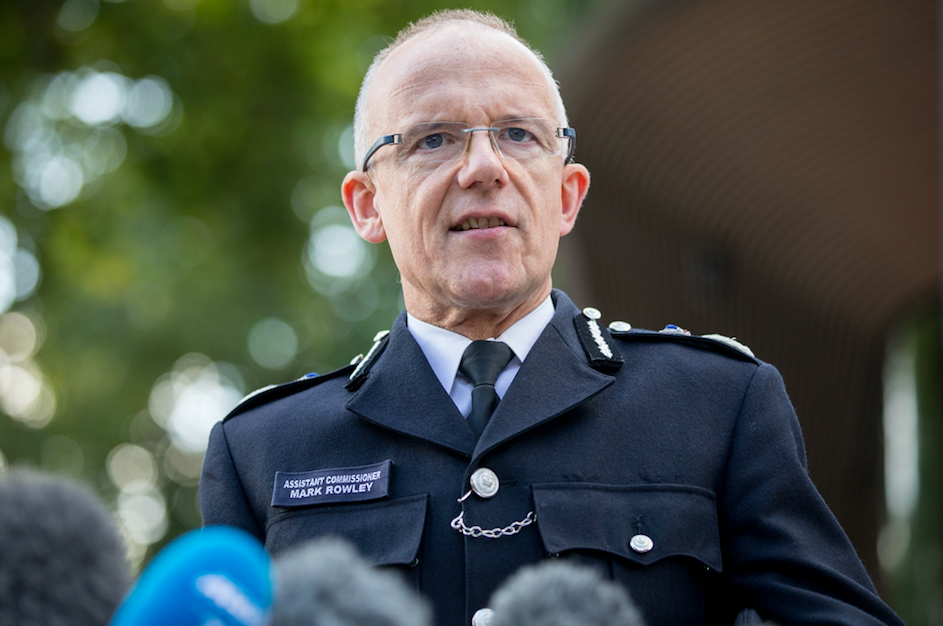Policeman seriously ill after assisting poisoned ex-Russian spy Sergei Skripal named as Sergeant Nick Bailey.

The police officer left seriously ill after going to the assistance of poisoned ex-Russian spy Sergei Skripal has been named as Detective Sergeant Nick Bailey.
DSt Bailey was the first to attend the scene after a nerve agent was used to try and murder the former spy and his daughter Yulia.
According to the Salisbury Journal DSt Bailey was recognised for outstanding police work in December 2016 after putting a serial rapist behind bars.
Wiltshire Police’s Temporary Chief Constable Kier Pritchard said earlier today: ‘I have just left the bedside of our officer and family in hospital. Conveyed all our thoughts and wishes, an amazingly courageous officer.
‘Thank you for the huge number of messages of support for our injured officer in hospital. We all wish for a full and speedy recovery.’

Defence Secretary Gavin Williamson also praised his actions earlier today, calling him ‘someone who is doing their public duty, keeping Britain safe and has become a victim of this dreadful, dreadful attack’.
It emerged today that Russian officials may be expelled from the UK following the attack on the double agent, according to Whitehall sources.
The Government is said to be drawing up a list of people they could throw out of the country if it is confirmed that Moscow was behind the ‘assassination attempt’, that left Mr Skripal, daughter Yulia and a policeman critically ill in hospital.
Former British ambassador to Russia Sir Andrew Wood told The Telegraph that the diplomatic way forward could involve expelling the Russian ambassador to Britain.



He told the paper: ‘If it is true that this is, in some fashion, the Russian state, it obviously makes it even harder to believe the Russian state is worth anything or is to be trusted.
‘The fact they targeted his daughter, and that a policeman is seriously ill, makes it emotionally difficult, but it does not alter the fact that this was an attempted assassination on British soil.’
Assistant Commissioner Mark Rowley, the head of counter-terrorism policing, revealed on Wednesday that the incident was being treated as attempted murder and the pair had been ‘targeted specifically’.
What we know so far about the Russian spy investigation
Sergei Skripal and daughter Yulia were found unconscious on a bench in Salisbury on Sunday
Mr Skripal is a former Russian double agent who was tried for treason in Moscow
A policeman who arrived at the scene is also critically ill in hospital
Russia not yet blamed but Defence Secretary warns of ‘Russian threat’
Royal Family put under pressure to boycott World Cup in Russia
Substance used to poison Mr Skripal confirmed to be a nerve agent
Kremlin say they are open to work with Britain in investigation
Home Secretary Amber Rudd said the police officer who was caught up in the poisoning is ‘talking and is engaging’ in hospital.
She told ITV’s Good Morning Britain: ‘I’ve spoken to Mark Rowley this morning.
‘The two targets are still in very serious condition, the policeman is talking and is engaging so I’m more optimistic for him, but it’s too early to say.


‘This is a nerve agent, we are still treating it as very serious.’
Asked if she was hopeful for the police officer, she added: ‘Indeed, hopeful, but it’s still very serious.’
Meanwhile, counter-terror police are working to determine the source of the nerve agent used to poison Mr Skripal, 66, and Ms Skripal, 33, in Salisbury, Wiltshire, on Sunday.
MOST POPULAR TODAY ON YAHOO
Rugby player left disabled for life after eating slug as dare at birthday party
Horror crash in North Yorkshire leaves two teens dead and seven injured
Access to nerve agents, which are chemical weapons, are tightly regulated, meaning the Salisbury plot would have taken considerable planning to execute.
Hamish de Bretton-Gordon, a former commanding officer of Britain’s Joint Chemical, Biological, Radiological and Nuclear Regiment, told the Times: ‘This is not the stuff you can knock up in your back shed.

‘It is quite challenging to make. The inference is that this has probably come from a major laboratory, probably state-run.’
Russia have denied responsibility for the attack, which comes seven years after Mr Skripal was released from the country as part of a spy swap with the US.
He had been convicted in his home country in 2006 for passing state secrets to MI6.

The investigation has triggered a diplomatic row and prompted crisis talks in Whitehall but Ms Rudd said police must respond to ‘evidence, not to rumour’.
Nevertheless, Defence Secretary Gavin Williamson Defence Secretary described Russia as ‘an ever-greater threat’.
He told ITV1’s Good Morning Britain: ‘Russia’s being assertive, Russia’s being more aggressive, and we have to change the way that we deal with it because we can’t be in a situation in these areas of conflict where we are being pushed around by another nation.’

Mr Williamson declined to say whether he held Russia responsible for the attack in Salisbury, saying only: ‘What’s happened is absolutely disgusting and it is so important we give the police the space and opportunity to do a proper and thorough investigation.’
He paid tribute to the police officer who went to the Skripals’ aid as ‘someone who is doing their public duty, keeping Britain safe and has become a victim of this dreadful, dreadful attack’.
Hundreds of detectives, forensic officers and analysts are working on the case, which has drawn comparisons to the poisoning of former Russian intelligence officer Alexander Litvinenko on British soil in 2006.

Mr Rowley reiterated his appeal for anyone who was in Salisbury city centre on Sunday to come forward to help with the “missing pieces” in the case.
Dame Sally Davies, the chief medical officer, said the incident posed a ‘low risk’ to the public and advised that all the sites the pair were known to have visited had been ‘secured’.
Police have extended the cordons in Salisbury city centre, and also sealed off part of a business park in nearby Amesbury.
What are nerve agents and how do they work?
Nerve agents, used to deadly effect in assassinations and conflicts of the past, disrupt signals in the nerves, causing debilitating side effects which can be fatal.
Contrary to popular belief, nerve agents – which were first discovered by accident in the 1930s, when scientists were attempting to find a more cost-effective pesticide – are a liquid, rather than a gas, and can seep through the skin.
The toxins interfere with the central nervous system, causing the body to become overstimulated and leading to twitching, spasms, heart failure and respiratory arrest.

Only tiny amounts – as small as a drop – are required for nerve agents to take effect – in fact it is so toxic that it would usually be transported in something tightly sealed and those who apply it will need protective clothing.
Antidotes do exist, including a medication called atropine – which works by blocking the receptor that acetylcholine usually binds to.
Thankfully, the ingredients required to create a nerve agent are carefully regulated in the UK and while scientists can access some of the components for perfectly legitimate purposes, they will have to explain what their intentions are with it.

 Yahoo News
Yahoo News 

